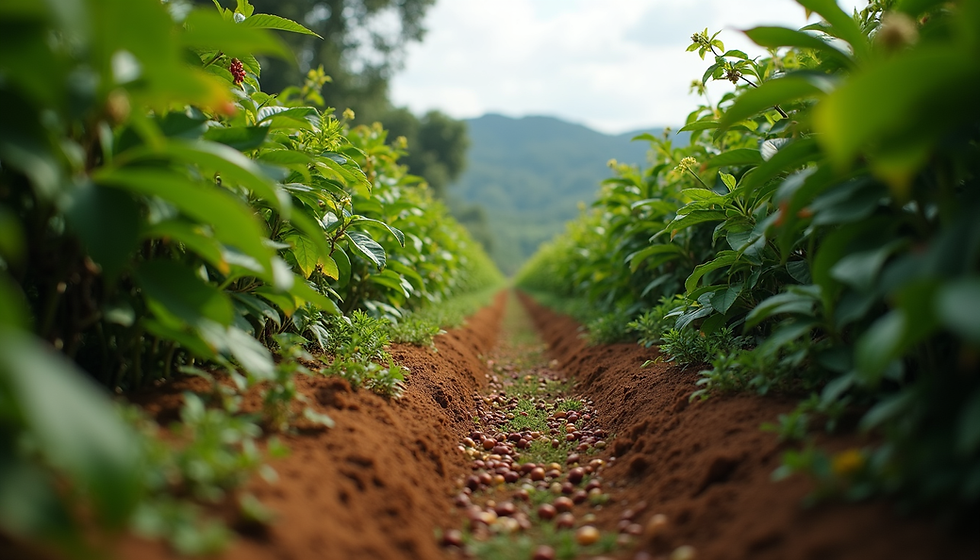Coffee Market Report
- Justin Cornelius
- Feb 23, 2025
- 2 min read

As of February 23, 2025, the global coffee market is experiencing significant volatility, with prices reaching unprecedented highs due to a combination of climatic challenges, supply chain disruptions, and increased demand.
Current Coffee Prices
Arabica Coffee: Futures have surpassed $4.30 per pound, marking a historic peak. This surge is primarily attributed to adverse weather conditions in major producing regions, notably Brazil, where prolonged droughts have severely impacted yields.
Robusta Coffee: Prices have also escalated, with futures reaching an intraday high of $5,580 per metric ton. Factors such as extreme weather in Vietnam and Indonesia have led to reduced crop yields, contributing to the price increase.
Factors Influencing the Market
Climatic Challenges: Brazil, the world's largest coffee producer, is enduring its most severe drought in over seven decades, drastically reducing coffee output. Similarly, Vietnam and Indonesia have faced adverse weather conditions, including excessive rainfall and high temperatures, leading to diminished robusta bean production.
Supply Chain Disruptions: Global shipping challenges, including elevated freight costs and port congestions, have exacerbated the supply-demand imbalance, further inflating coffee prices.
Increased Demand: The global appetite for coffee continues to grow, with emerging markets such as China contributing to heightened consumption. This surge in demand, coupled with supply constraints, has intensified upward pressure on prices.
Impact on Retail and Consumers
The escalation in wholesale coffee prices is cascading down to consumers. In regions like Australia, the cost of a cup of coffee is projected to reach between $8 to $12 by the end of 2025. This increase is compelling café owners to adjust their pricing strategies, potentially leading to a reduction in consumer demand and the closure of some establishments.
Market Outlook
While current prices are at record highs, some analysts anticipate a potential market correction. A Reuters poll suggests that arabica coffee futures could decline by approximately 30% by the end of 2025, assuming improved weather conditions and increased production in key regions. However, this forecast is contingent upon favorable climatic developments and the stabilization of global supply chains.
In summary, the coffee market in early 2025 is characterized by unprecedented price levels driven by environmental adversities, logistical challenges, and robust global demand. Stakeholders across the supply chain are closely monitoring these dynamics to navigate the complexities of the current landscape.
Global Coffee Prices Reach Record Highs Amid Supply Concerns




Comments